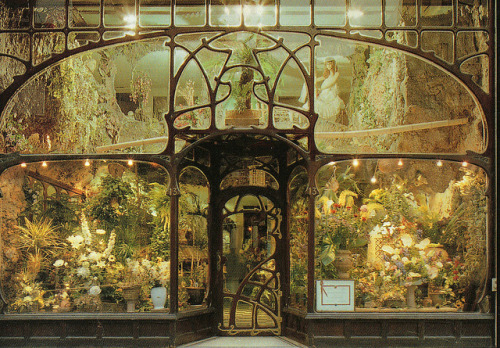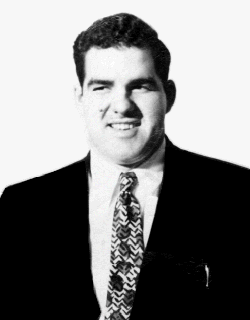As Christians It Is Actually Our Duty To Be Joyful. We Have Been Commanded Unto Joy. This Is Not An Impossible
As Christians it is actually our duty to be joyful. We have been commanded unto joy. This is not an impossible ask, for no cross can crush the joy of Christ, not even depression, grief, or sorrow. The joy of the Lord flourishes mysteriously, simultaneously, in the midst of such joy-blackholes; for when our own joy has disippated, God's Joy finally has full room to settle. God does not command the impossible, and so it is only fair that we ask not for Joy like timid slaves, but command it as a right as sons, as daughters of God. Yes, in Christ we possess this right, but only by faith can we claim it, and by the cross can we live it. Let the world have its joy, and we will have ours. Maybe out of envy they will seek out this Christ, this Joy of ours.
womb and the cloud
More Posts from Mariaagnesi-fangirl-blog and Others
“I am among those who think that science has great beauty. A scientist in his laboratory is not only a technician: he is also a child placed before natural phenomena which impress him like a fairy tale.”
— Marie Curie (via onequoteperday)

St Constantine Ukranian Catholic Church, Minneapolis, Minnesota
Hello, could you please help to spread awarness about the persecution its suffering Catholic Church in Nicaragua for helping the people that has been protesting since last year against the narco-communist regime of Daniel Ortega? They are about to kill priest Roman in Masaya city (they are under siege since last thursday with no water/electricity or any aid) and now the cathedral and 3 more parishes. The communist goons has profaned the cathedral and hit a priest just today. Pray for us urgently
Health of Mothers under Police Siege Deteriorates in a Masaya, Nicaragua Church
HAVANA TIMES – A group of citizens trapped within the San Miguel Archangel Church in Masaya, Nicaragua, currently find themselves dehydrated and with no food. Father Edwin Roman, who suffers from diabetes, has been suffering from fierce headaches due to the lack of food and insulin he needs to control his blood sugar levels.
The Ortega regime’s police have maintained a siege of the church for three straight days, with a police cordon that has closed off a perimeter of 300 meters around the Catholic church. Electricity and running water were cut off, by government order. Within the church, the priest is accompanying ten mothers of political prisoners and one female protestor who are on a hunger strike. They’re also accompanied by two released political prisoners, a human rights advocate and one employee of the church.
This is urgent everyone please pray!!

Art nouveau flower shop, Brussels




I love her talent



Tickling the Dragon’s Trail with the Demon Core
“Gentleman, what we have here is the most powerful force ever created by mankind. Lets poke at it with a screwdriver.”
—Louis Slotin, Los Alamos laboratory
After World War II the scientists at Los Alamos laboratory found themselves in possession of a spare core originally intended for a nuclear bomb. Nicknamed ‘“Rufus” the core would have been detonated as part of a third nuclear bomb dropped on Japan, however the Japanese surrendered before the bomb could be assembled. Instead the 89mm (3.5 inch) diameter sphere of plutonium-gallium was reserved for scientific testing, in particular criticality experiments.
Critical mass is the minimum amount of mass needed for a fissile material to sustain a nuclear chain reaction. When a fissile material reaches critical mass, it becomes “supercritical”, where it releases a large amount of energy. Rufus was 5% subcritical, thus scientists thought it was ideal for use in criticality experiments. The experiment was designed to simulate critical mass by surrounding the core with neutron reflectors, in this case tungsten carbide bricks. The bricks would deflect released neutrons back into the core, increasing it’s reactivity. Completely surrounding the core would cause it to go supercritical, an event which was to be avoided because it would release a burst of neutron radiation that could kill everyone in the room. Essentially the purpose of the experiment was to see how much nuclear material could be added to the core before it would go supercritical, and measure how much energy is released in the process.
On August 21st, 1945 physicist Harry K. Daghlian Jr. (pictured above left)was conducting a criticality experiment with Rufus when he accidentally dropped a tungsten carbide brick on the core. The core went supercritical, releasing a burst of neutron and gamma radiation while bathing the room in a bright blue light. Daghlian promptly responded by removing the brick from core, causing his hand to instantly blister from the radiation.

Daghlian had received a deadly dose of radiation, resulting in his death 25 days later. An accompanying guard, Army Private Robert J. Hemmerly, was sitting at a desk 12 feet away but seemed unharmed by the accident, although he would die 33 years later from leukemia.
After the accident, Rufus was renamed, “The Demon Core”. A new procedure was designed to make the experiment “safer”, which was designed by physicist Louis Slotin (pictured above, right). The new procedure involved the core sitting between two beryllium half spheres. A screwdriver was jammed in between the two half spheres, creating a gap through which neutrons could escape. The screwdriver was used to manipulate the half spheres, raising or lowering them to increase or decrease the size of the gap, thus increasing or decreasing the reactivity of the core. If the two half spheres completely enclosed the core, it would go supercritical.

If this sounds completely bonkers, you probably have more common sense than the brilliant physicists who conducted these experiments. In fact the experiment was named “Tickling the Dragon’s Tail”, based on a remark by physicist Richard Feynman who compared the experiment to “tickling a sleeping dragon”. Slotin was certainly aware of the dangerous nature of the experiment, he had been at Daghlian’s bedside when he had died. The famed physicist Enrico Fermi had warned Slotin that if he continued these criticality experiments, he would be dead within a year.
On May 26th, 1946 Slotin was conducting a criticality experiment with the demon core when he lost control of his screwdriver, causing the beryllium sphere to close. The incident is almost perfectly re-enacted in the 1989 film “Fat Man and Little Boy”,
Louis Slotin died of acute radiation poisoning nine days later. Of the other seven people in the room, two would die of cancer years later, although it is unknown whether the accident contributed to their deaths.
After these two criticality accidents new experiments were designed which used remote controlled machines and cameras. The Demon Core was melted down and recycled into other cores.

Hurricane Dorian Seen From Aboard the Space Station via NASA https://ift.tt/2Uq1OE8

A Trail of Night Lights from the International Space Station

70s CATHOLIC PENDANT KNIFE | LISTING

AFGL 490
Cluster of Newborn Stars In Cocoon Of Dust And Gas In The Constellation Camelopardalis
-
 starfayy liked this · 1 year ago
starfayy liked this · 1 year ago -
 mariaagnesi-fangirl-blog reblogged this · 5 years ago
mariaagnesi-fangirl-blog reblogged this · 5 years ago -
 womb-and-the-cloud reblogged this · 5 years ago
womb-and-the-cloud reblogged this · 5 years ago -
 womb-and-the-cloud reblogged this · 5 years ago
womb-and-the-cloud reblogged this · 5 years ago -
 womb-and-the-cloud reblogged this · 5 years ago
womb-and-the-cloud reblogged this · 5 years ago -
 where-orthodoxy-is-found liked this · 5 years ago
where-orthodoxy-is-found liked this · 5 years ago -
 darnitjack liked this · 5 years ago
darnitjack liked this · 5 years ago -
 irasciblehermit reblogged this · 5 years ago
irasciblehermit reblogged this · 5 years ago -
 irasciblehermit liked this · 5 years ago
irasciblehermit liked this · 5 years ago -
 tinyshe reblogged this · 5 years ago
tinyshe reblogged this · 5 years ago -
 anxiousteacher liked this · 5 years ago
anxiousteacher liked this · 5 years ago -
 womb-and-the-cloud reblogged this · 5 years ago
womb-and-the-cloud reblogged this · 5 years ago

"There is a pre-established harmony between thought and reality. Nature is the art of God." - Gottfried Willhelm Leibniz
164 posts